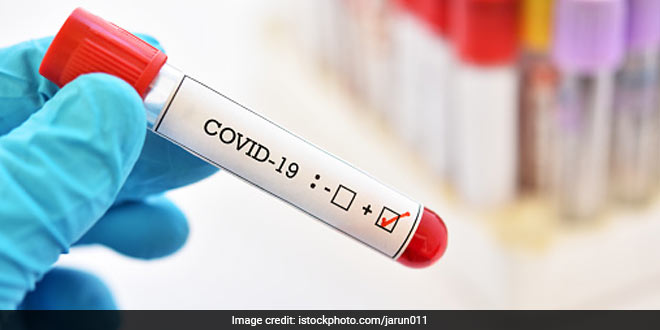Highlights
- Sero-survey was conducted at a leading Delhi hospital for over 5 months
- A total of 780 samples were used for the serological testing
- The survey also included hospital workers and healthcare professionals
New Delhi: A sero survey conducted at a leading hospital here over five months has found that the prevalence of antibodies, in a person who has recovered from coronavirus infection, persists for 60-80 days. The survey found that antibodies persisted in the recovered patient’s body for at least 60 days, depending on when the participant was infected or came in touch with infected people. The participants of the sero survey, jointly done by the Max Hospital and Institute of Genomics and Integrative Biology, under the Council for Scientific and Industrial Research (CSIR), will again be tested to assess how long the anti-bodies last in the person who contracted COVID-19, said Shantanu Sengupta, the IGIB scientist who conducted the study.
A total of 780 samples were used for the serological testing which include hospital workers and individuals who visited the hospital during the pandemic. Our study results confirm that anti SARS-CoV-2 antibodies could remain for more than 60 days in the body. This is a step forward towards better understanding of the infection recovery and re-infection pattern. There is a need for larger follow-up studies to further assess how long the antibodies remain stabilised in the body, Sengupta said.
Sujeet Jha of the Institute of Endocrinology, Diabetes, and Metabolism Max Healthcare, Max Super Speciality Hospital, Saket, said,
This study, being a longitudinal study, would help us to understand if asymptomatic or symptomatic sero postive individuals are protected for COVID-19 and if yes, for how long.
Also Read: 40 Per Cent Recovered COVID-19 Patients In Ahmedabad Lost Antibodies: Survey
In total, 448 staff — physicians (59), nurses (70), administrative staff (15), front office (12), catering (17), housekeeping (46), security (9), laboratory (45), pharmacy (8), general duty assistant (28), engineering (21), home care (5), research (19), and others (94) from different hospital units participated in the study. There were 65.8 per cent males and 34.1 per cent females among the hospital staff. From the general population — those who visited the hospital — 332 individuals (77.1 per cent males and 22.9 per cent females) also participated in the study.
We observed an increasing trend of seropositive cases amongst the hospital staff, over a period of four months, from April to July which was expected and is a reflection of the increased spread of the infection in these months. Among the HCWs (healthcare workers), the sero prevalence increased from April (2.3 per cent) to July (50.6 per cent). The cumulative sero prevalence observed in the study is 16.5 per cent (74/448). The prevalence observed in the general population is 23.5 per cent (78/332), the study said.
The sero survey conducted in the city from June 27 to July 10 found that nearly 23 per cent people had antibodies against coronavirus. Another survey conducted in the city last month saw the number going up to 29 per cent.
NDTV – Dettol Banega Swasth India campaign is an extension of the five-year-old Banega Swachh India initiative helmed by Campaign Ambassador Amitabh Bachchan. It aims to spread awareness about critical health issues facing the country. In wake of the current COVID-19 pandemic, the need for WASH (Water, Sanitation and Hygiene) is reaffirmed as handwashing is one of the ways to prevent Coronavirus infection and other diseases. The campaign highlights the importance of nutrition and healthcare for women and children to prevent maternal and child mortality, fight malnutrition, stunting, wasting, anaemia and disease prevention through vaccines. Importance of programmes like Public Distribution System (PDS), Mid-day Meal Scheme, POSHAN Abhiyan and the role of Aganwadis and ASHA workers are also covered. Only a Swachh or clean India where toilets are used and open defecation free (ODF) status achieved as part of the Swachh Bharat Abhiyan launched by Prime Minister Narendra Modi in 2014, can eradicate diseases like diahorrea and become a Swasth or healthy India. The campaign will continue to cover issues like air pollution, waste management, plastic ban, manual scavenging and sanitation workers and menstrual hygiene.
[corona_data_new]





























